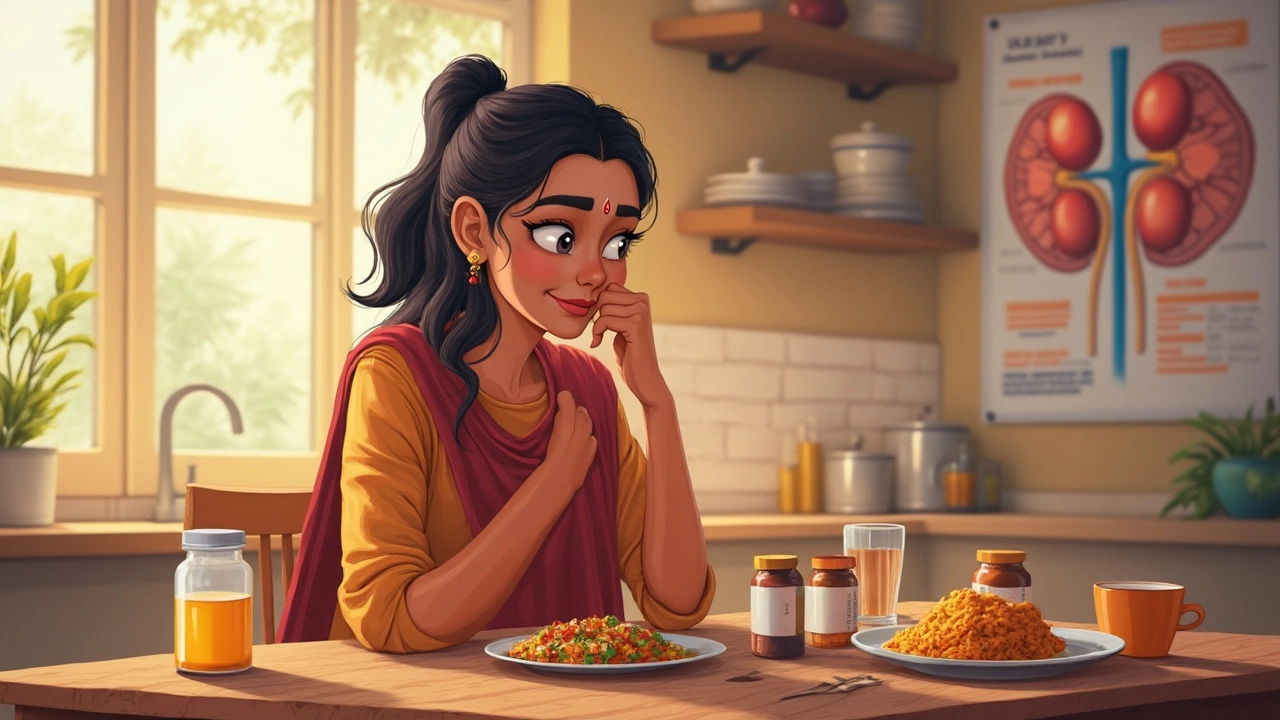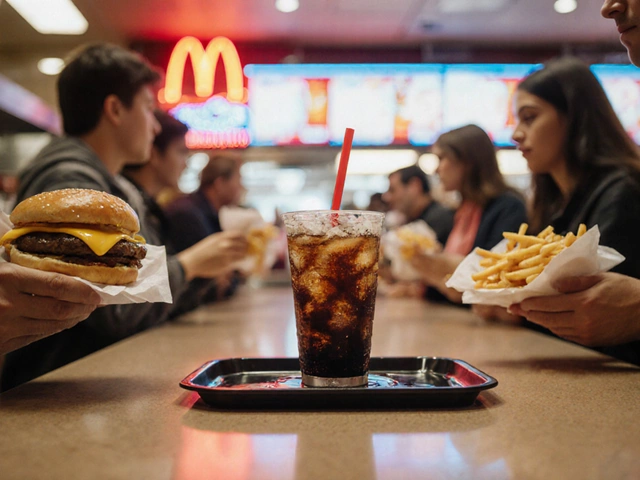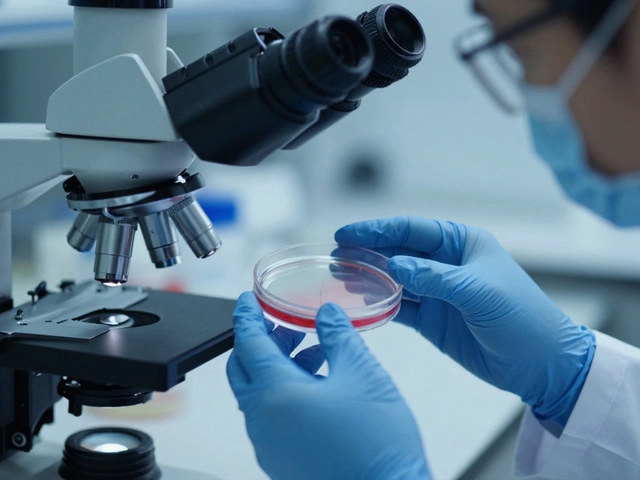Ask anyone about vitamins and the first thing you’ll hear is how they’re necessary for good health. But what barely gets said? Some vitamins, especially in high doses, aren’t as innocent as those cheerful pills seem. This hits home hard if your kidneys aren’t in top shape—or if you love mega-dosing on supplements because you think “more is better.” Let’s just say, your kidneys don’t always agree.
How Kidneys Process Vitamins—and Where Things Go Wrong
Your kidneys are like hardworking bouncers for your blood, letting in the good stuff and kicking out the wastes. Every day, they filter roughly 120 to 150 quarts of blood to produce about 1 to 2 quarts of urine. When you swallow a vitamin—say, vitamin C—your body takes what it can use and the kidneys flush out the rest. Or at least, that’s how things are supposed to work.
Two types of vitamins hit your bloodstream: water-soluble (like C and B-complex) and fat-soluble (A, D, E, K). Water-soluble ones dissolve in water and usually get peed out fast, so you’d think it’s no big deal. Fat-soluble vitamins hide in your body’s fat for a long time, quietly building up. They’re trickier to get rid of. But here’s the catch: If your kidneys slow down, even those water-soluble vitamins can stick around, which can cause trouble—especially if you keep popping multivitamins.
Now, if your kidneys are damaged, even a regular dose of something like vitamin C or B6 can tip the balance. There are real stories where people landed in the hospital because what started as “just extra vitamin C” ended up as kidney stones or even kidney failure. According to the National Kidney Foundation, vitamin C doses above 500 mg per day can lead to kidney stones in people at risk. But don’t get smug if your kidneys work fine; chronic excess can still sneak up on anyone.
To give you an idea how the kidneys juggle vitamins (and how things sometimes break down), here’s a look at average filtration rates for adults by kidney function:
| Kidney Function | Filtration Rate (GFR) | Risk With Excess Vitamins |
|---|---|---|
| Normal | >90 mL/min | Low to moderate |
| Mild impairment | 60-89 mL/min | Increased |
| Moderate impairment | 30-59 mL/min | High |
| Severe impairment | Below 30 mL/min | Very high |
When things go south with your kidneys, you lose the luxury of “easily filtered” vitamins. That’s why kidney specialists often urge people with chronic kidney issues to avoid certain supplements entirely, or at least get a pro’s advice first.
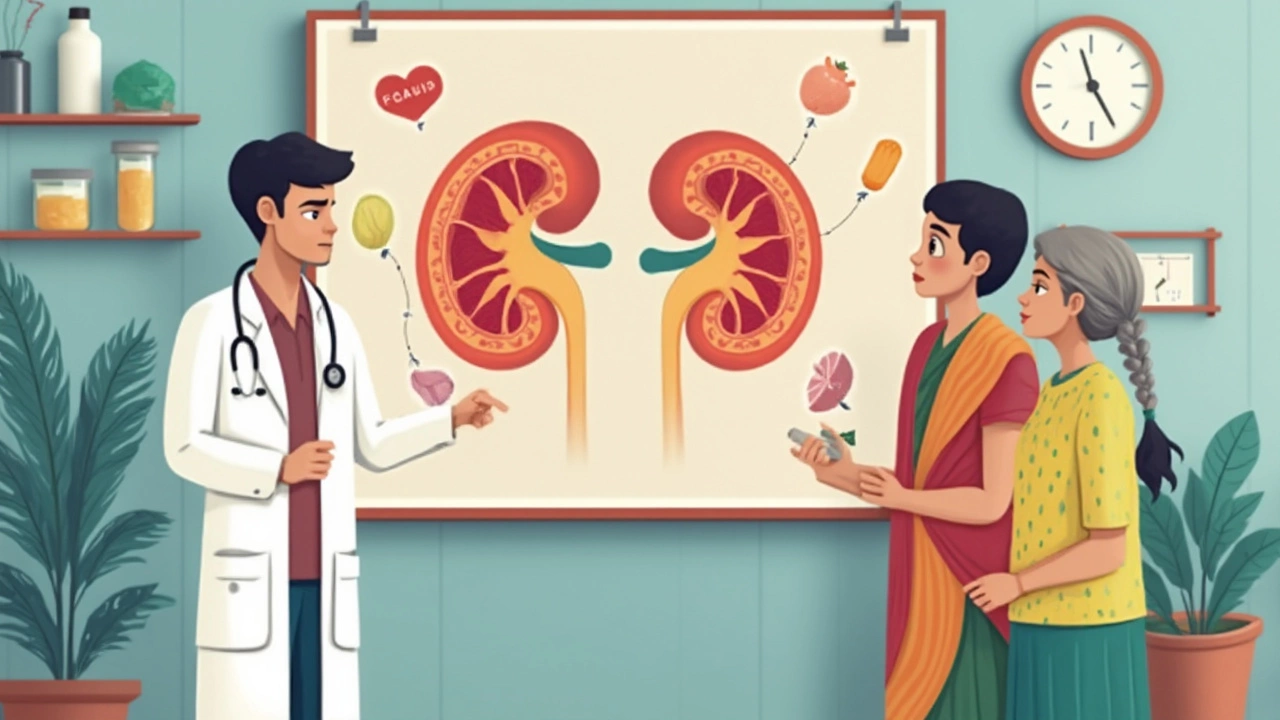
Vitamins That Can Harm Your Kidneys
Plenty of folks assume “vitamin” automatically means “safe.” But certain vitamins can do real damage to your kidneys, especially in high doses or if you’ve already got kidney issues lurking under the surface. Here’s the lowdown on which ones to be careful with:
- Vitamin C – It’s the poster child for fighting colds, but above 500 mg daily, it can turn into oxalate—a substance that forms hard, painful kidney stones. The risk gets scary-high for anyone who already has impaired kidney function. Scary fact: Some people with chronic kidney disease (CKD) end up on dialysis just from vitamin C-related stone buildup.
- Vitamin A – Unlike C, your body doesn’t just pee this one out. It’s fat-soluble, so it sticks around. Over time, too much can actually poison your kidneys. High blood vitamin A levels (above 3,000 micrograms/day) have been seen in people with kidney disease, leading to bone pain, skin changes, and even worse kidney problems.
- Vitamin D – Here’s a paradox: You need vitamin D, but mega-doses (above 4,000 IU per day) can spike your calcium levels—a ticket to dangerous kidney stones or calcification inside the kidneys. For folks with CKD, it’s even tricker because D helps balance calcium and phosphorus, but also raises the risk of deposits when things aren’t dosed just right.
- Vitamin B6 – In smaller amounts, B6 is a helper. But doses above 100 mg daily can lead to nerve damage and, in people with CKD, excess B6 has been tied to more stone formation. Not as famous as its siblings, but still one to watch.
- Niacin (Vitamin B3) – Used in some heart medications and by people trying to lower cholesterol naturally. Overdoing it (above 2,000 mg/day) can actually trigger kidney failure in rare cases—especially if kidneys aren’t in perfect health.
- Vitamin E – Fat-soluble like A and D, so it just accumulates quietly. High supplemental doses (over 1,000 mg/day) have been shown to increase bleeding risk and could worsen chronic kidney disease.
Notice a trend? Most of the danger comes from going way overboard. But even “normal” doses might be too much if your kidneys can’t filter well. If you’ve been prescribed supplements for deficiency, that’s one thing. But if you’re guessing—or chasing some internet super-dose trend—think twice, especially if you’ve had stones, high blood pressure, diabetes, or any kind of kidney flag on your health chart.
Ever hear someone say, “My pee is neon yellow—I’m just flushing out extra vitamins, right?” Actually, that’s your kidneys working overtime. It’s not a badge of health; it’s a warning sign you might be taking too much. Ignore it long enough, and the overload could set you up for kidney trouble down the road.
If you’re wondering if it’s just modern supplements causing this, the answer is no. Even back in the 1980s, doctors saw kidney stones in people taking high doses of vitamin C and A. Modern habits just make it easier to get super-high doses.
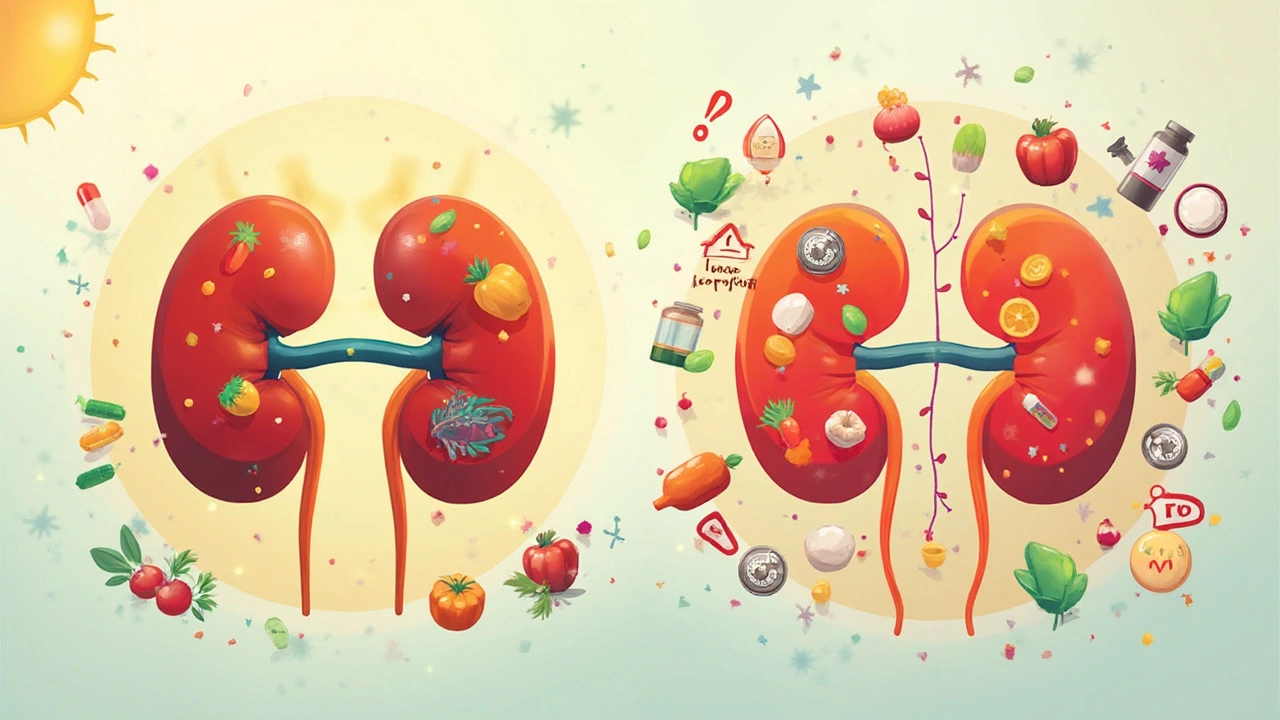
Smart Ways to Supplement Without Risking Your Kidneys
No one’s saying to ditch all your vitamins. Some people really do need extra—pregnant women, older adults, folks with certain deficiencies. But where’s the sweet spot between healthy and risky?
- Get your levels tested. Lab results will let you know if you’re low and which vitamin exactly—not just a guess based on social media trends.
- Stick to recommended daily values for most vitamins if you don’t have a deficiency. Don’t be tempted by the thinking that “5x the dose = 5x the health.”
- If you’ve ever had kidney stones or have CKD (even stage 1 or 2), talk to a nephrologist before starting anything new. What’s okay for your uncle might not be for you.
- Check supplement labels closely. Some multivitamins, especially “performance” or “immunity” types, hide massive doses way above what your body actually needs.
- Go easy on juice cleanses and “immune boosters.” Several popular wellness regimens pack multiples of vitamin C or B6 in a single day.
- Eat your vitamins in food if you can—your body absorbs them better, and it’s almost impossible to overdose from broccoli or oranges.
- Stay hydrated. Kidney issues often start with dehydration, especially if you’re supplementing and not drinking enough water to help with flushing excess.
- Don’t mix-and-match high-dose supplements without medical advice. It’s easy to take a multivitamin, a “bone health” mix, and then a smoothie packet, and wind up with a mega-dose you never intended.
One trick I use is to bring my list of supplements and doses to my annual checkup and ask for feedback. If bloodwork shows a borderline kidney function or a vitamin trending too high, I cut back—no shame in safe habits. My friend who ran marathons learned the hard way: too much vitamin D and C in an attempt to boost “immunity” actually ended up pushing his kidney markers in the wrong direction after a long summer of racing and supplementing.
Another surprising tip: If you’re buying supplements online, stick to reputable brands that are third-party tested. Cheap or imported supplements sometimes contain undisclosed ingredients that can make things even more dangerous for your kidneys.
Here’s a rough guide based on latest recommendations from the Mayo Clinic and the National Kidney Foundation for healthy adults:
| Vitamin | Recommended Max Daily Dose | Potential Kidney Risk |
|---|---|---|
| C | 500 mg | High doses—kidney stones |
| A | 3,000 mcg (10,000 IU) | Toxic build-up, especially in CKD |
| D | 4,000 IU | High calcium, kidney stones |
| B6 | 100 mg | Possible neurotoxicity, stones in CKD |
| E | 1,000 mg | Bleeding, kidney risk in CKD |
Don’t fall into the trap of thinking “if a little is good, a lot is great”—when it comes to your kidneys, moderation is key. Pay extra attention to your daily multi, energy drinks, sports supplements, and even fortified foods; a few hidden megadoses can add up fast. If in doubt, a quick chat with your doc or a pharmacist can steer you clear of trouble.
Your kidneys are quiet workers, but they’re easy to overload and hard to fix once damaged. Respect them—and keep your vitamin adventure safe and smart for the long haul. Your body, and especially your kidneys, will thank you.
